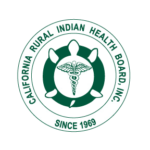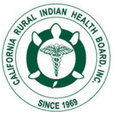TRIBAL MEDICATION-ASSISTED TREATMENT (TMAT) PROGRAM
The goal of the program is to meet the specific prevention, treatment, and recovery needs of California’s Tribal communities.
Activities
- Connect DHCS, Indian stakeholders, and non-Tribal and Urban Indian MAT providers.
- Facilitate technical assistance and training services.
- Distribute naloxone to Tribal communities.
- Provide culturally adapted training and suicide prevention materials.
- Implement and fund Tribal Local Opioid Coalitions.
- Develop telehealth infrastructure to interface with UCLA’s Project ECHO and other telehealth systems.
Community Opioid Campaign
Project Contacts
Caroline Brewer, Central CA MAT Champion, cbrewer@crihb.org
Rahmad Perry, Northern CA MAT Champion, rperry@crihb.org
Cesar Gonzalez-Garcia, TMAT Project Coordinator, cgonzalez-garcia@crihb.org
TRIBAL PUBLIC HEALTH CAPACITY-BUILDING AND QUALITY IMPROVEMENT UMBRELLA: OPIOID SUPPLEMENT
The goal of the project is to address the need for public health prevention and intervention by directly funding Tribal nations and regional Tribally designated organizations.
Activities
- Convene an Opioid Tribal Summit to identify opioid overdose concerns and share promising practices in Tribal communities.
- Conduct site visits to identify opioid overdose concerns among Tribal youth.
- Convene at least one Southern, one Central, and one Northern regional meeting to identify opioid overdose concerns among Tribal adults and elders.
- Develop a strategic plan to address opioid overdose in Tribes.
Completed Strategic Plan
Activities
- Partner with Tribal nations and key partners to improve surveillance by providing epidemiologic, statistical, analytical, and data interpretation support; in addition, co-host an annual in-person meeting with the California Department of Public Health (CDPH) to improve data sharing.
- Implement activities to assess racial classification of AIAN data in state data sets, improve internal staff capacity to access, analyze, and apply data, and increase the use of data by Tribes and Tribal organizations.
- Implement activities to improve non-fatal AIAN overdose data. This includes identifying two Tribal health programs to work with their local hospital emergency department to develop a plan to improve non-fatal overdose data in that Tribal community that could be replicated.
- Implement activities to improve fatal AIAN overdose data. This includes developing new partnerships with medical examiners, coroners, and funeral directors to increase knowledge of the need to have accurate abstraction of data and to develop a plan to improve the documentation of AIAN deaths.
Project Contact
Sneha Jaiswal, Epidemiologist, sjaiswal@crihb.org
Priyanka Manghani, Epidemiologist, pmanghani@crihb.org
TRIBAL OPIOID RESPONSE PROGRAM
The goal of the program is to address the opioid crisis in Tribal communities by increasing access to culturally appropriate and evidence-based treatment, including MAT.
Activities
- Complete a comprehensive strategic plan to address the gaps in prevention, treatment, and recovery identified by the Tribe.
- Implement workforce development activities to ensure that individuals working in Tribal communities are trained to prevent and treat opioid misuse.
- Develop effective prevention strategies, which include but are not limited to elder education, outreach and engagement of youth, strategic messaging, and community prevention activities.
- Develop strategies to purchase and disseminate Naloxone and provide training on its use to first responders and other Tribal members.
- Implement service delivery models that enable the full spectrum of treatment and recovery support services.
- Implement community recovery support services.
- Provide assistance to patients with treatment costs and develop other strategies to eliminate or reduce treatment costs for uninsured patients.
- Provide treatment transition and coverage for patients reentering communities from criminal justice settings or other rehabilitative settings.
Project Contact
Todd Jackson, Project Coordinator, tjackson@crihb.org


